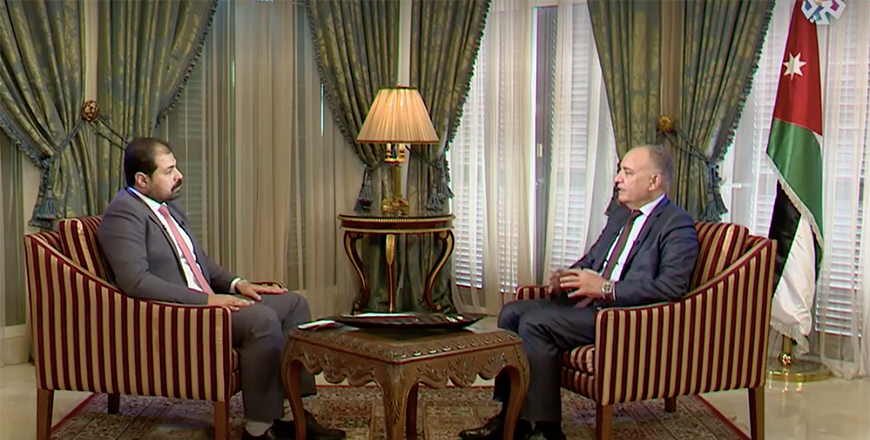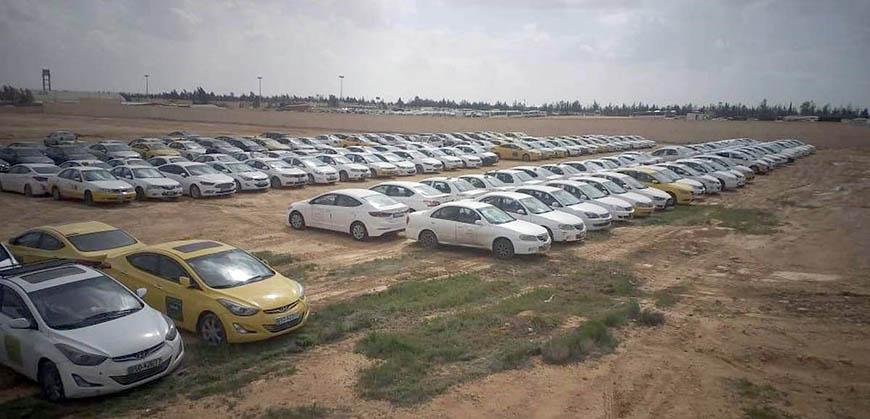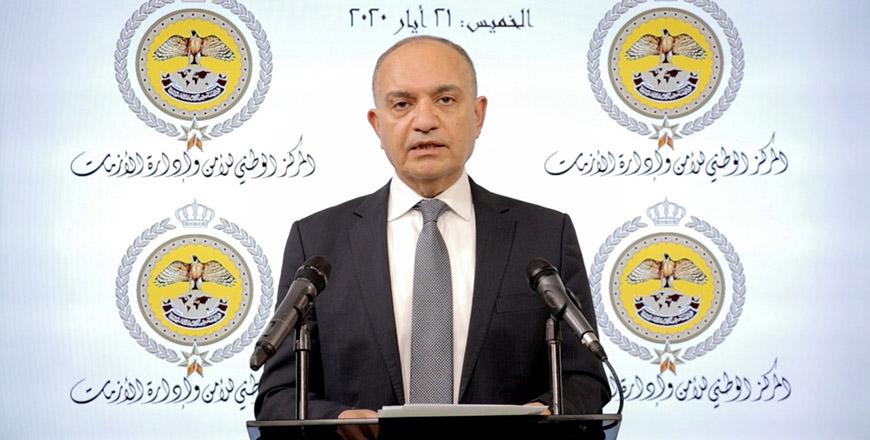You are here
Gov’t has ‘no specific timeframe’ for completely reopening Kingdom, Adaileh says
By JT - May 16,2020 - Last updated at May 16,2020

Minister of State for Media Affairs Amjad Adaileh speaks during an interview on the 'Special Talk' programme, aired on Al Araby Television on Friday (Photo courtesy of Al Araby Facebook page)
AMMAN — Minister of State for Media Affairs Amjad Adaileh on Friday said that lifting the curfew completely and returning life to normalcy depends mainly on the Kingdom's epidemiological situation.
The minister pointed out that recording zero COVID-19 cases for three weeks in a row may lead the Kingdom to take such a decision, the Jordan News Agency, Petra, reported.
Speaking on Al Araby Television’s "Special Talk" programme, Adaileh said that there is “no specific timeframe” set for completely reopening the country and resuming operations as normal, noting that Jordan's success in stamping out the virus also depends on the success of the neighbouring Arab countries in doing the same.
Jordan’s success also lies in strict measures taken by the government through imposing comprehensive and partial curfew orders in various parts of the Kingdom, Adaileh said.
Launching quarantine measures for returnees, closing borders and preventing travel, in addition to cooperation between citizens and official agencies have also helped the Kingdom's success, he noted.
In this regard, Adaileh praised the role of the Jordan Armed Forces-Arab Army and the Kingdom’s security agencies in limiting the spread of the virus among the public through the implementation of lockdown measures, to which citizens have adhered "greatly", showing a commitment level of 99 per cent.
Speaking on the reason for continuing the closure of places of worship, schools and universities, Adaileh said that the government has decided to keep schools and universities closed until the end of the scholastic year.
He noted that if the epidemiological situation in the Kingdom becomes “good”, universities will open their doors in preparation for the summer semester. If the situation continues as it is currently, educational institutions will continue with remote education, Petra reported.
Adaileh added that the recommendations of the Ministry of Health and the National Anti-Pandemic Committee indicate that mosques should not be opened due to the fear that gatherings may pose a risk to public health, stressing that "citizens’ health and safety is a priority for us".
As of now, there are “no areas in Jordan that can be described as infected or dangerous”, he said, noting that all areas where infections have been reported are “under control”.
Related Articles
AMMAN — Citizens, merchants and employees in Aqaba’s tourism industry have followed the city’s hotels in demanding the extension of curfew h
AMMAN — Minister of State for Media Affairs Amjad Adaileh on Friday said that the Kingdom is still witnessing many violations and breaches o
AMMAN — Minister of State for Media Affairs Amjad Adaileh on Thursday announced a plan to open land, sea and air crossings to allow Jordania
















